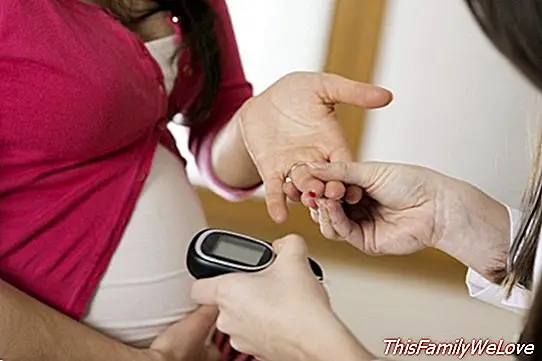Gestational diabetes may cause postpartum depression in first-time mothers
Pregnancy is a beautiful stage on which there is still much to investigate. There are many risks that the mother goes through and that is why it is very important to follow a strict health control in pregnancy. Little by little the specialists discover new causes and treatments for the most frequent problems of pregnancy that help to prevent them and take this moment in the best possible way.
Now a group of specialists from the Icahn School of Medicine, New York, and the Karolinska Institute, Sweden, has found a relationship between gestational diabetes and the subsequent postpartum depression in first-time mothers.
Sugar in pregnancy
The gestational diabetes It is not related to common diabetes. It is a condition in mothers who have high concentrations of sugar during pregnancy. This process affects few pregnancies and usually presents discrete symptoms, however it can cause serious harm to both the mother and the baby. Some problems that could be more than previously thought.
This was what this group of researchers wanted to find out that it was proposed to find out if there was any factor explaining the appearance of postpartum depression in women. For this they analyzed a group of close 700,000 women pregnant women to try to know their characteristics during pregnancy and if there was some kind of problem after delivery.

After collecting the data of these women, the specialists found that those women who had presented higher levels of blood sugar during pregnancy were more likely to suffer from postpartum depression. In particular the probability of suffering from this problem after delivery multiplied by 70.
"Most specialists think they are two isolated and very different conditions, but now we see that gestational diabetes and postpartum depression should be considered together," explains Dr. Michael E. Silverman, lead author of this research.
Other risk factors for postpartum depression
The specialists not only discovered that gestational diabetes was causative of postpartum depression. Other factors also influenced the development of this problem after the birth of the child. In particular having suffered one of these mood episodes during pregnancy also makes a mother more likely to relapse.
For the authors of this research, the discovery of all these factors is good news because it can mean the programming of more effective treatments against postpartum depression before time. "There is a reason why doctors always ask if you smoke, they know that smokers are 20 times more likely to have cancer (...) Now, gynecologists and obstetricians can do the same with a history of gestational diabetes or depression before pregnancy, and intervene before the unborn baby, "concludes the doctor. Silverman.
Damián Montero




